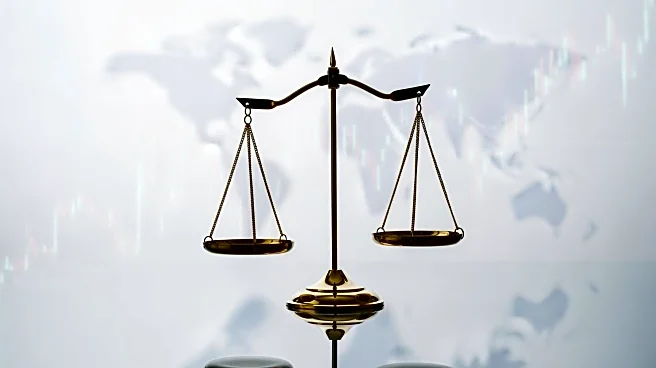What's Happening?
The Central Bank of the Russian Federation has reduced its key interest rate by 0.5 percentage points to 16.5 percent, in response to economic challenges posed by high inflation and extensive Western sanctions.
This decision follows the U.S. imposing sanctions on major Russian oil suppliers, Rosneft and Lukoil, which significantly contribute to Russia's GDP. The bank has also revised its growth forecast for 2025, predicting a growth rate of 0.5 to 1 percent, down from the previous estimate of 1 to 2 percent. Despite anticipating an increase in inflation to between 4 to 5 percent next year, the bank aims to stimulate economic activity through this rate cut.
Why It's Important?
The interest rate cut by Russia's central bank is a strategic move to mitigate the adverse effects of U.S. sanctions on its economy, particularly in the oil sector. These sanctions have disrupted trade and increased geopolitical tensions, which are significant factors affecting Russia's economic stability. The decision to lower rates, despite rising inflation, underscores the urgency to support economic growth and counteract the sanctions' impact. This development is crucial for global oil markets, as fluctuations in Russia's oil production can influence global oil prices, affecting economies worldwide, including the U.S.
What's Next?
The central bank's decision may lead to further economic adjustments as Russia navigates the challenges posed by sanctions and inflation. Stakeholders, including Russian businesses and international investors, will closely monitor the economic indicators and geopolitical developments. The U.S. and other Western nations may respond with additional sanctions or diplomatic measures, depending on Russia's actions in the geopolitical arena. The ongoing situation in Ukraine and Russia's economic strategies will continue to be pivotal in shaping future economic policies and international relations.
Beyond the Headlines
The rate cut highlights the complex interplay between economic policy and geopolitical tensions. Russia's reliance on oil and gas exports makes its economy vulnerable to external pressures, such as sanctions. This situation raises ethical and strategic questions about the use of economic sanctions as a tool for political leverage. The long-term implications for Russia's economic diversification and resilience are significant, as the country may need to explore alternative economic models to reduce dependency on oil exports.









